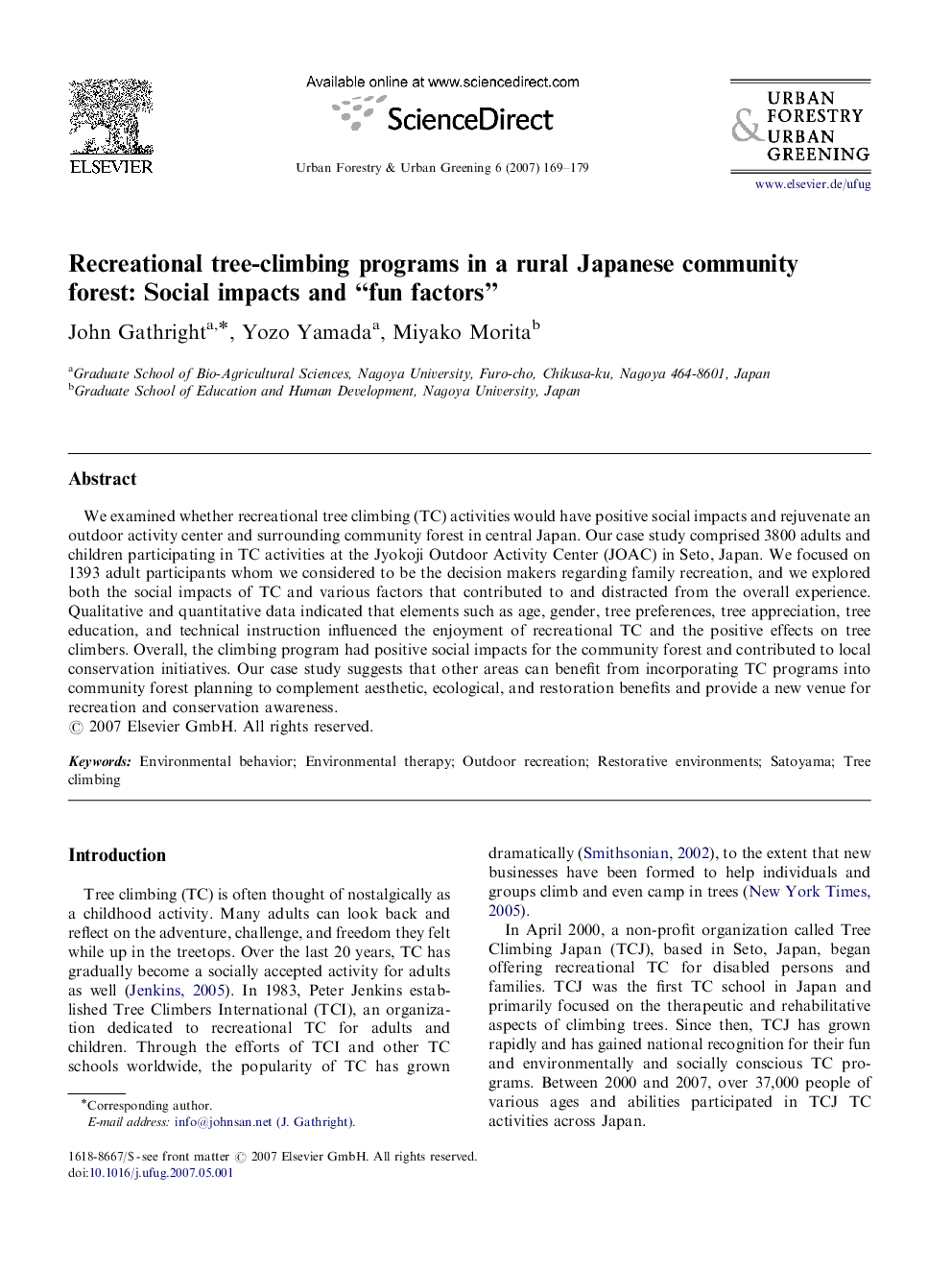| Article ID | Journal | Published Year | Pages | File Type |
|---|---|---|---|---|
| 94299 | Urban Forestry & Urban Greening | 2007 | 11 Pages |
We examined whether recreational tree climbing (TC) activities would have positive social impacts and rejuvenate an outdoor activity center and surrounding community forest in central Japan. Our case study comprised 3800 adults and children participating in TC activities at the Jyokoji Outdoor Activity Center (JOAC) in Seto, Japan. We focused on 1393 adult participants whom we considered to be the decision makers regarding family recreation, and we explored both the social impacts of TC and various factors that contributed to and distracted from the overall experience. Qualitative and quantitative data indicated that elements such as age, gender, tree preferences, tree appreciation, tree education, and technical instruction influenced the enjoyment of recreational TC and the positive effects on tree climbers. Overall, the climbing program had positive social impacts for the community forest and contributed to local conservation initiatives. Our case study suggests that other areas can benefit from incorporating TC programs into community forest planning to complement aesthetic, ecological, and restoration benefits and provide a new venue for recreation and conservation awareness.
